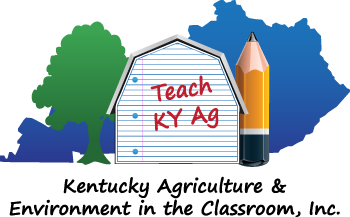Celebrate our Earth this Month with These Environmental-Friendly Lessons
Caring for the environment is our farmers' and landowners' most important job. If we don’t use our natural resources wisely, we may not be able to grow food in the future.
This Earth Day (April 22) week, plan to use one of these lessons to show how we work to protect our planet!
Primary & Intermediate
Garden Ecosystems are Awesome
Learn the parts of the garden ecosystem, what living things need to survive, interdependence, and habitats.
Students will learn about the cycle of water—the important processes of accumulation, evaporation, condensation, and precipitation, and what causes water to move throughout the earth and its atmosphere.
The point of this lesson is to teach students to learn the importance of topsoil, the amount of topsoil we have, and why we should care for it.
A few more…
Sort the Recycling Game for Preschoolers
Water Pollution Activities for Kids
Polluting a Fish for Earth Day
Animal Habitat for Preschoolers
Homemade Plantable Seed Paper for Earth Day
Earth Day Activities for Everyone
BOOK: Discover Dirt (PreK/K)
BOOK: Water Wise
BOOK: Step-by-Step Experiments with Soils
Intermediate & Secondary
The Kentucky Farm as an Ecosystem
Kentucky Proud/KyAEC Lesson
Grades 4-8, HS Enrichment
Students will learn how a farm is an ecosystem, identify the parts of the farm ecosystem and how they interact and depend on one another, identify the producers and consumers in a farm ecosystem, model the food chain/food web within a farm ecosystem, learn how changes affect the farm ecosystem and availability of food, identify the natural resources in a farm ecosystem and ways to protect them, and understand the size of their personal ecosystem.
Learn more
Students examine the basic geography of a watershed, how water flows through the system, and how people can impact the quality of our water. Grades 3-5
Let's Make Clean Water
Middle School Science - Students will:
Identify the various parts of the water cycle.
Identify and explain how groundwater is created.
Design and construct an earth system model that will create groundwater.
Read About Kentucky Conservation Efforts
Need a reading component for middle or high school students? If so, use these profiles of Kentucky farmers that are leaders in sustainability. There are corresponding reading comprehension questions that are aligned to Kentucky Academic Standards for reading informational texts.
Secondary
Journey 2050 is a FREE agriculture education program that challenges participants to answer, “How will we sustainably feed nearly 10 billion people by the year 2050?” This is a wonderful resource for your middle or high school science, social studies, or agriculture classroom. View the webinar, then visit the site.
Be sure also to check out the National Agriculture in the Classroom Curriculum Matrix:







